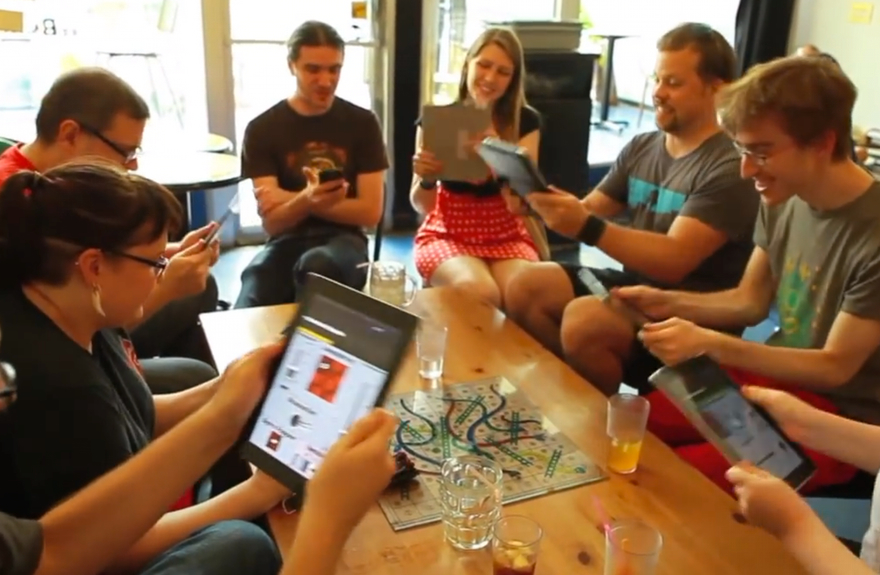This article is a collaboration with iQ by Intel.
What if the Internet is inadvertently strangling the videogame market? After all, games are just packets of information that can be duplicated infinitely and beamed around the Earth for practically no cost. Perhaps piracy could be used consciously; at least it could get a game in as many people’s hands as possible.
Thoughts like these were percolating in Henry Smith’s head. Smith had just finished creating a mobile game called Spaceteam, and he had no idea how much he was going to charge for it. The game is an unconventional one, with two or more players working together to man a spaceship. Naturally, this involves issuing oral commands to your teammates such as “Set star prism to maximum!” The game is a hoot, but Smith feared the concept was so unusual that no one would take a chance and pay for it. If people just tried it, however, he was sure they’d love it. His next step took a leap of faith: he gave the game away for free, and it paid off, at least as much as a free game can be said to pay off. It went on to become a big success, moving over 2 million downloads.

The only problem is that even at two million free downloads, that’s almost zero dollars of income. (The game contains some unintrusive in-app purchases that didn’t amount to much.) In order to continue making games, he needed money to pay his bills, rent, and insurance. In some ways, his crisis is the crisis of the Internet era. We expect everything we do online to be free. Why pay for an ebook of George R. R. Martin’s or that old Kinks album you listened to in college when you can pirate the identical document? “There’s a lot of problems with charging money for digital products. Any price you slap on them is artificial in some way,” Smith told me, “but I firmly believe that artists should be paid for their work.”
Often new problems are an opportunity for new solutions. Instead of following a traditional revenue model that involves buying and selling, what if we invested in people? Smith recently went to Kickstarter and asked for those who loved his game to become his patrons, if they wanted. In exchange for a one-year salary of $80 thousand, he pledged to his backers that he would create a year’s worth of free games, scout’s honor. They took him up on it. “Some people paid a dollar. Others, five dollars. If I could convince them to support me, I could get by,” he says. To help with the persuading, he had purchased a ten dollar captain’s hat at the costume store and began appearing in it to let fans know that an actual person was behind the game, not some faceless corporate entity.

It’s an interesting social proposition which requires having some faith in people: I gave you a free game, so if you feel like thanking me, you can donate a little or a lot of money, which I’ll use to live on while making another free game—and I’ll throw in a captain’s patch. Whereas a capitalistic system makes us out as either online petty thieves or squanderers who buy digital stuff that retains no monetary value, the patron system lets us be altruistic and put trust in fellow human beings. It also keeps us humble. “I’m not trying to get rich. I’m just trying to be sustainable,” Smith says, pointing out that, even if you don’t care about things like virtues, patronage could be great for games, giving the designer the freedom to create without compromising her vision for fear of it not selling. “I selfishly don’t want to be restrained by that,” he told me.
